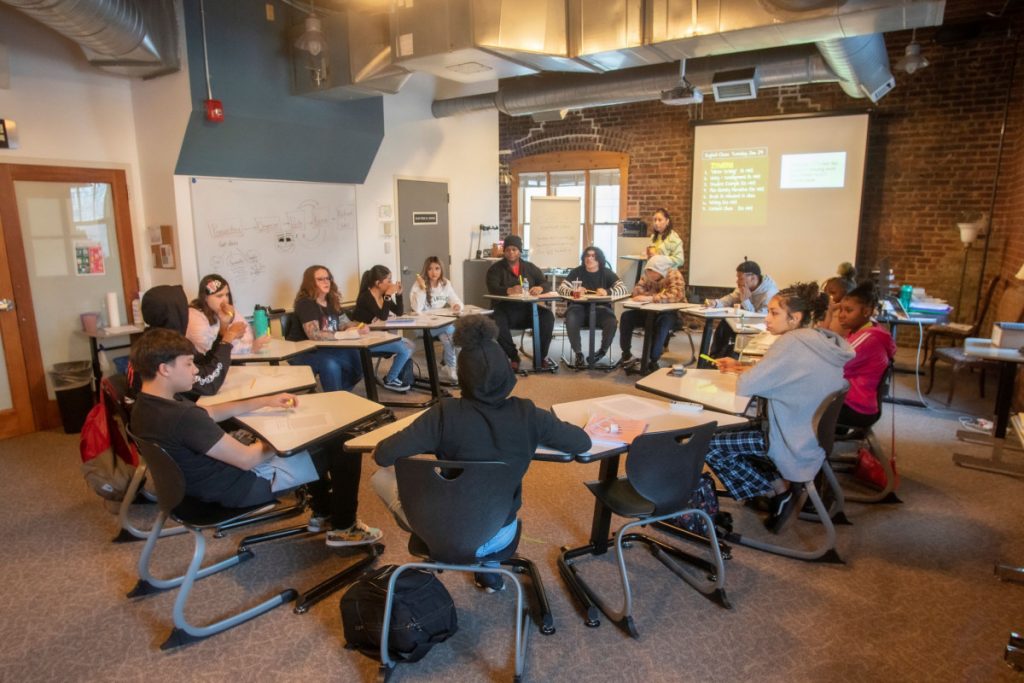Correction: This post has been updated to correctly describe the Charter School Institute as a public entity, created by statute. We regret the error in the original version of this piece.
A bill introduced in the Colorado legislature by State Representative and Denver school board member Jennifer Bacon represents a blatant attempt to strip the State Board of Education of its authority to prevent local school boards hostile to charter schools — like Denver’s — from choking the life out of the charter sector.
Coming from a school board member who consistently trumpets her commitment to community voice, House Bill 21-1295 reeks not only of pique at the state board but hypocrisy as well.
You might recall that last November, the state board ordered Denver Public Schools to reconsider its decision to delay for at least a year the opening of DSST Public Schools’ Rachel Noel High School. The capricious DPS board decision would have prevented 159 Rachel Noel Middle School eighth-graders from transitioning seamlessly from their high performing charter middle school to the new high school.
Under the current state law, the DPS board had little choice but to reverse its decision, which means Noel high school will open this summer. That did not sit well with several DPS board members, Bacon among them.
Bacon, who had been elected to the Colorado House of Representatives the previous week, wasted little time after taking state office before starting work on her noxious bill.
Current law requires appellants to demonstrate that a charter denial was “in error,” and contrary to the best interests of children, school districts, or the community. Historically, the state board has been balanced in its appeals decisions. Between 2000 and 2020, it upheld 64 local school decisions on first appeal and remanded 62 for reconsideration. Another 15 local decisions were overturned after a second appeal.
HB 21-1295 would flip the orientation of charter school appeals so that the appeals process begins from a “rebuttable presumption” that a local school board’s denial decision “was in the best interests of the students, school district, or community,” as long as the denial was based on “at least one of several specified considerations.” The appellant school or network would have to overcome that presumption to win an appeal.
But the bill stacks the deck against charters while tying the state board’s hands. The considerations delineated in the bill are so broad and vague that there is almost no room for the state board to exercise its discretion.
A local charter denial would be presumed legitimate if approving the charter would “conflict with the local board of education’s existing long-term plans for the school district;” if it would have an impact on “school enrollment among the the schools of the school district;” or if it conflicted with “school district financial considerations.”
This is laughable on its face. These presumptions are allegedly rebuttable, but how is a charter school or charter network supposed to rebut such broad conditions? Let’s take them one by one.
- If the DPS board decides that it wants to phase out all charter schools over, say, a 10-year period, then overturning a charter denial would conflict with long-term plans. So how do you rebut that? It doesn’t matter how harmful such a policy might be, if it’s part of a long-term plan, it’s presumed to be legit.
- Any charter school by definition has an impact on enrollment in district schools. It’s called parental choice. Parents vote with their feet. If they think a charter school offers a better option for their kid, they will choose the charter, thereby removing their child from a district-run school. Under Bacon’s bill, that would no longer be OK. Or at least it would give the local boards pretext for denying a charter school application or renewal. Given that eight of Colorado’s top 10 high schools are charters according to a recent ranking, this bill demonstrably hurts kids by limiting their best choices.
- Finally, of course charter schools have an impact on district “financial considerations.” When a student enrolls in a charter school, most of the “per-pupil operating revenue” attached to that student moves to the charter school. This, too, is called parental choice. Again, this clause allows any charter denial to be presumed legitimate.
This bill is so obviously a full frontal assault on the charter school appeal process that it should fool no one.
Here’s a modest proposal. Someone should amend Bacon’s bill to allow the Charter School Institute, a public entity created by statute and empowered to authorize charter schools in many districts, to approve charter schools in any district in the state. The amendment should further stipulate that CSI-approved schools receive exactly the same per-pupil, mill levy, and facilities funding that district-approved charters get.
If school boards, led by Denver, want carte blanche to deny charters, offering charters no recourse, then let’s strip all local boards of sole chartering authority, and truly level the playing field.




